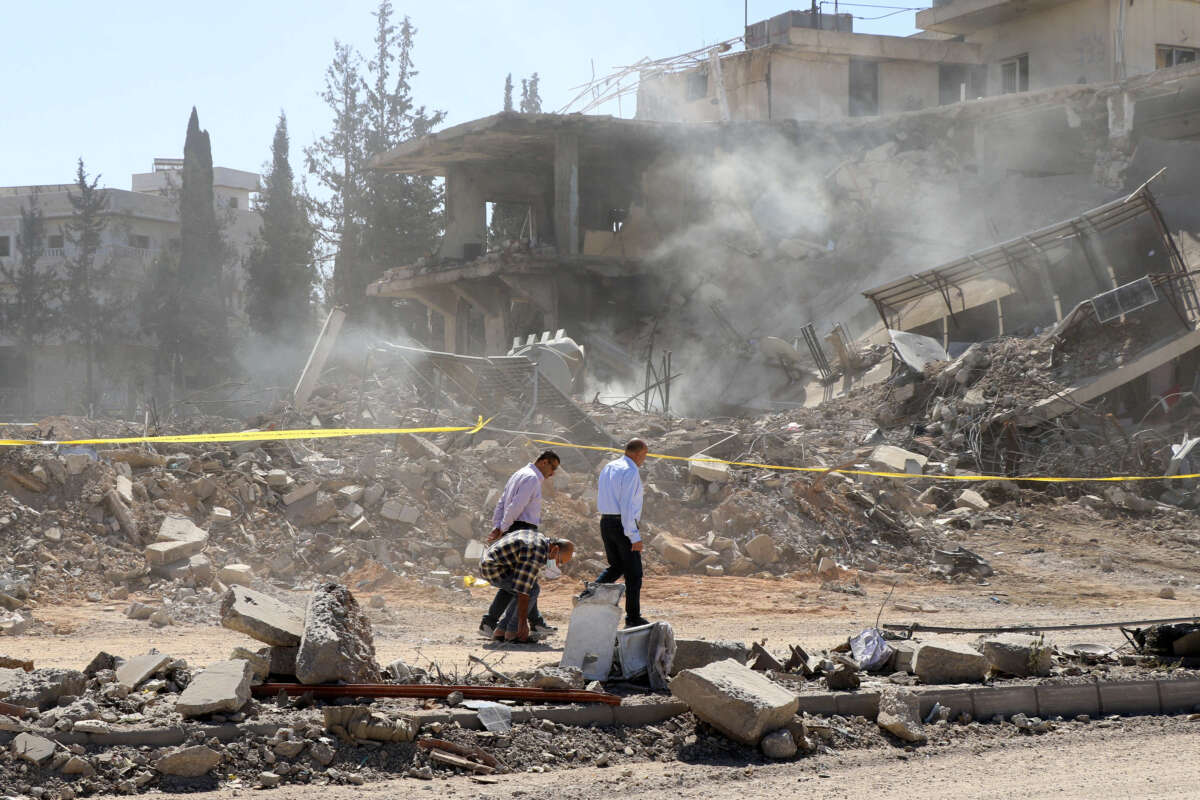In recent days, Israeli attacks have come “perilously close” to striking a UN-designated world heritage site in east Lebanon, the UN has warned, putting one of the best-preserved Roman ruins in the world in danger of being destroyed by Israeli bombing.
This week, Israeli forces ordered the entire city of Baalbek, in the Bekaa Valley, to evacuate — the first citywide displacement order amid Israel’s escalating attacks on Lebanon. The sweeping order affected 80,000 residents of the ancient city, which is a UNESCO World Heritage site.
In subsequent days, Israeli forces have bombed Baalbek, killing 11 people in an air raid on Thursday, according to Lebanon’s National News Agency, and killing 19 people on Wednesday.
These strikes are also threatening to destroy Roman ruins that are some 2,000 years old, like the Temple of Bacchus and Temple of Jupiter.
“In recent days, attacks on sites in Baalbek in the Bekaa valley have come perilously close to the ancient temple complex which is a UNESCO listed world heritage site,” the UN Human Rights Office said in a statement on Friday.
The UN noted that Israeli forces have already destroyed or severely damaged at least 12 religious buildings in Lebanon, including 11 Muslim facilities and a Greek Catholic church. Reports have found that Israeli forces have carried out controlled detonations of several religious sites.
“All willful damage or destruction of buildings dedicated to religion is prohibited,” the UN office said. “[C]ivilian objects, buildings dedicated to religion and other sites of cultural significance are protected from attack under international humanitarian law unless they become military objectives.”
If Israeli forces attack the heritage site, it will be one of the many sites with cultural, religious or historic significance it has damaged or destroyed amid its genocide of Gaza and assault on Lebanon.
UNESCO has found, from preliminary estimates, that Israeli forces have damaged at least 69 cultural and religious sites in Gaza. Other estimates are far higher, with one organization estimating that at least 195 heritage sites have been damaged or destroyed as of January, just two months into Israel’s genocide. The number is likely far higher now.
Since October 2023, Israeli forces have killed about 2,800 people in Lebanon, including 166 children.
Like they’ve done across wide swaths of Gaza, Israeli forces appear to be attempting to entirely raze communities in south Lebanon, rendering them uninhabitable.
According to a The Washington Post analysis, Israeli forces have damaged or destroyed nearly a quarter of all buildings in south Lebanon in the past year of bombardments. Nearly 6,000 buildings have been affected by Israel’s attacks, the publication found in an analysis of satellite data, with almost 80 percent of the damage being done since Israel’s ground invasion in Lebanon began in October.
Angry, shocked, overwhelmed? Take action: Support independent media.
We’ve borne witness to a chaotic first few months in Trump’s presidency.
Over the last months, each executive order has delivered shock and bewilderment — a core part of a strategy to make the right-wing turn feel inevitable and overwhelming. But, as organizer Sandra Avalos implored us to remember in Truthout last November, “Together, we are more powerful than Trump.”
Indeed, the Trump administration is pushing through executive orders, but — as we’ve reported at Truthout — many are in legal limbo and face court challenges from unions and civil rights groups. Efforts to quash anti-racist teaching and DEI programs are stalled by education faculty, staff, and students refusing to comply. And communities across the country are coming together to raise the alarm on ICE raids, inform neighbors of their civil rights, and protect each other in moving shows of solidarity.
It will be a long fight ahead. And as nonprofit movement media, Truthout plans to be there documenting and uplifting resistance.
As we undertake this life-sustaining work, we appeal for your support. Please, if you find value in what we do, join our community of sustainers by making a monthly or one-time gift.
